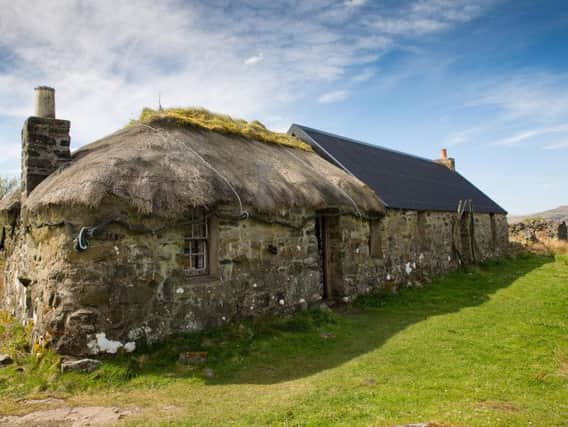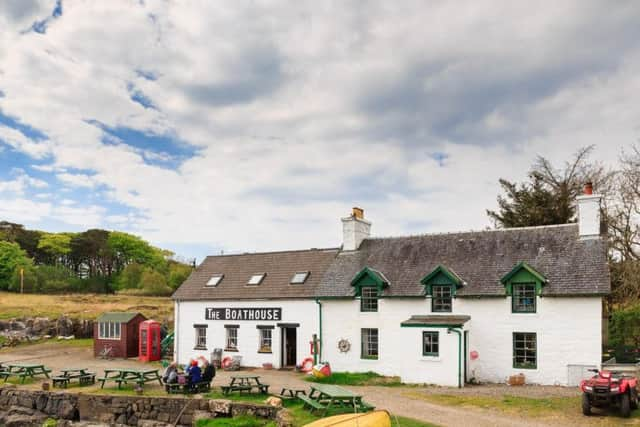'Sheila's Cottage' restored to tell past, present and future of tiny Scottish island now owned by its people


Sheila’s Cottage is the oldest blackhouse on the island of Ulva, which sits off the north west coast of Mull, and is being rethatched and revived as a visitor centre.
The property was home to Sheila MacFadgen, the last resident of the row of cottages that originally included a blacksmith’s.
Advertisement
Hide AdAdvertisement
Hide AdA dairy maid for the Clark family, who owned Ulva well into the 20th century, Ms MacFadgen moved into the cottage after 1911 and left in the 1950s for Mull when she could no longer look after herself.


The restoration is the first big, visible improvement to the island which was bought out by islanders last year after the Scottish Government, through the Scottish Land Fund, paid £4.4 million towards the purchase from a private landowner.
Wendy Reid, the new Ulva development manager at the North West Mull Community Woodland Company, which led the buyout, said the restoration of the blackhouse, which will use Ulva turf, was a significant milestone for the island.
“It is one of the first things you see after stepping off the ferry so for visitors and residents, it is a sign that things are really starting to change here.”
Ms Reid took up her post three weeks ago, with her arrival on the island from the Borders taking the population to six. It is hoped the population will grow to 20 in the next five years with ambitions to have 50 people living on Ulva in the long term.
Ms Reid added: “New housing is the most critical thing we can do on the island. To attract people to live here, there needs to be appropriate housing for them. We have six houses that are due to be renovated, three of them are occupied and three of them are empty.”
In addition, an old shooting lodge is to be turned into a hostel and a campsite. As well as creating jobs, it will help accommodate growing interest in the island which saw visitor numbers rise from 4,000 to around 7,000 last year as Ulva’s profile rose amid the buyout.
New building plots are also being drawn up as part of a new Ulva masterplan with hopes to bring farming back to the island, with ecological and land surveys underway. Ulva House, the largest on the island, is being converted into self catering units with part of the property to become a new heritage centre that will “celebrate Ulva and its people,” Ms Reid said.
Advertisement
Hide AdAdvertisement
Hide AdShe added: “During the 1800s, there were up to 600 people living on the island and a number of residents went on to do great things around the world. If you look at Ulva, it really is a microcosm of what was going on in Scotland at the time.”
Past residents include Lachlan Macquarie, who left to become governor of New South Wales from 1810 to 1821, leading the development of the colony. The ties between Ulva and Australia led the Bank of Macquarie to give £500,000 towards the community buyout.
Ms Reid added that interest in moving to Ulva remains high with people from around the world inquiring about the island.
She said: “Weekly, we get people e-mailing us asking when they can come. There is a mood of optimism on the island. People feel that we are on the verge of something. Ulva has huge potential and the trick will be maximising that potential but without losing what makes Ulva such a special place.”
